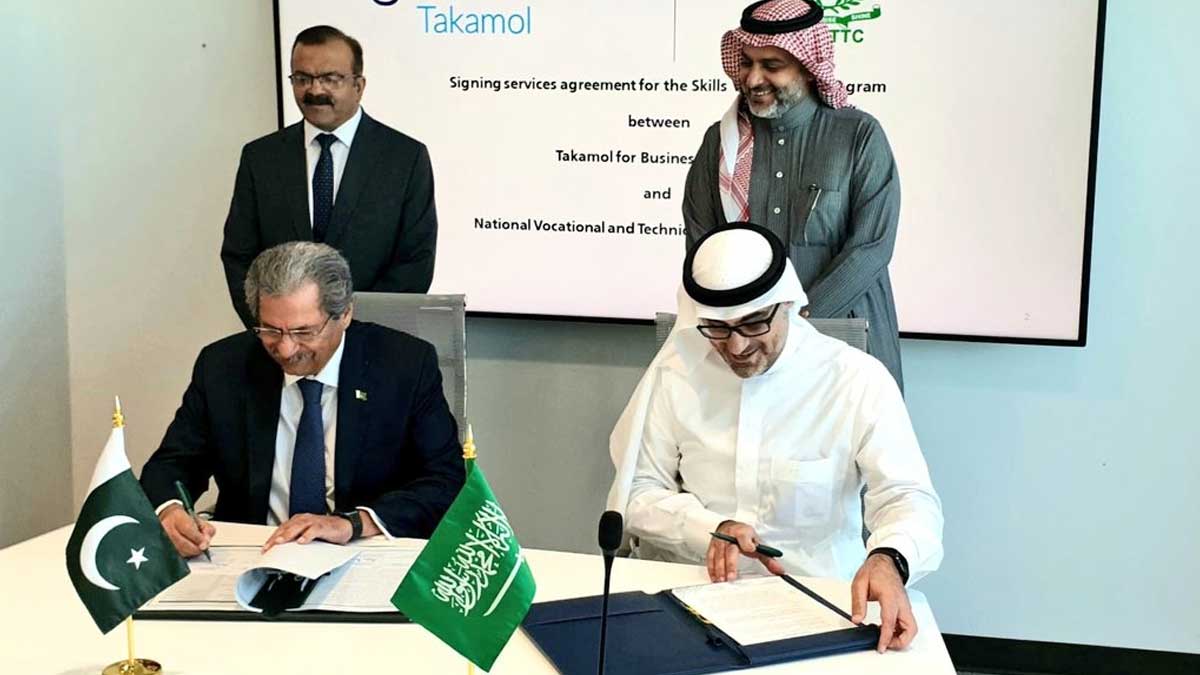According to the Foreign Office statement, Pakistan and Saudi Arabia signed agreement for worker recruitment and skill verification of Pakistani workers who are employed in the Kingdom of Saudi Arabia.
According to the FO, the contract on worker recruitment will help to streamline the process of exporting workers from Pakistan to Saudi Arabia in a variety of professions while also protecting their legal rights and providing detailed legal protection to Pakistani nationals working in the kingdom.
The agreement will also assist in the resolution of contractual problems and the pursuit of legal action against recruitment offices, organizations, or agencies who violate the agreement.
Read more: Pakistan, Saudi Arabia vow to strengthen ‘historic bonds’
The skills verification agreement will boost the export of skilled and certified Pakistani workers to the kingdom.
As per the FO statement, one of Prime Minister Imran Khan’s priority sectors is providing new skills and assuring certification of Pakistani worker to boost their recruitment overseas.
“Certification for our trained manpower would provide chances for Pakistan’s technical workforce to obtain internationally recognized training and certifications,” the statement continued.
The agreements were signed at a ceremony at the Saudi Arabian Ministry of Human Resources and Social Development by Shafqat Mahmood and Dr Ahmad Jabbar Al Yamni, according to the education ministry. Senior officials from both countries were present.
It’s worth noting that the majority of Pakistan’s expatriate labour is based in Saudi Arabia, where they contribute significantly to the country’s economy through remittances. The majority of the current Pakistani labour in the kingdom is classified as unskilled or semiskilled, which means lower pay and a detrimental impact on remittances, according to the press release.
Furthermore, given the dynamic market of labour regulations and the realities of the global labour market, a substantial number of Pakistani workers require skills certification because their qualifications, abilities, and certification are currently unrecognized. This collaboration will benefit a huge number of these employees while also contributing to national productivity and development.





















